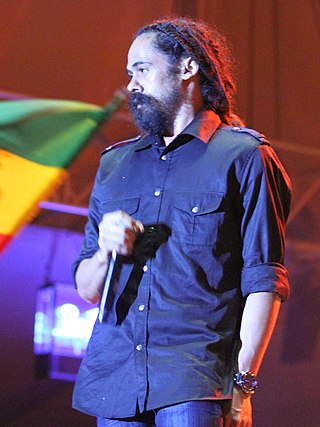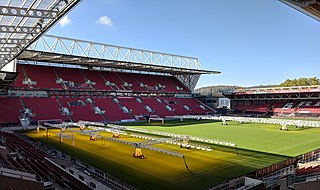Relationship most often refers to:
Kingdom commonly refers to:

Peter Frederick Wedlock was an English folk singer best known for his UK hit single "The Oldest Swinger in Town", which was covered by German comedian Karl Dall as "Der älteste Popper der Stadt". He performed at many venues in Britain and Europe, presented programmes for West Country TV and acted with the Bristol Old Vic, as well as undertaking after-dinner speaking engagements.

Enrique Miguel Iglesias Preysler is a Spanish singer and songwriter. He started his recording career in the mid-1990s on the Mexican label Fonovisa and became the bestselling Spanish-language act of the decade. By the turn of the millennium, he made a successful crossover into the mainstream English-language market. He signed a multi-album deal with Universal Music Group for US$68 million with Universal Music Latino to release his Spanish albums and Interscope Records to release English albums.

John Joseph Wardle, known by the stage name Jah Wobble, is an English bass guitarist and singer. He became known to a wider audience as the original bass player in Public Image Ltd (PiL) in the late 1970s and early 1980s; he left the band after two albums.

Damian Robert Nesta "Jr. Gong" Marley is a Jamaican DJ, singer, lyricist and rapper. He is the recipient of four Grammy Awards.

William John Wedlock, also known as "Fatty" or the "India Rubber Man", was an English footballer who played for Bristol City in 1900–01 and from 1905 until his retirement in 1921. Between 1901 and 1905 he played for Aberdare. He was a centre-half whose his short and stout stature belied his natural talent. He won 26 England caps between 1907 and 1914, his only rival for the centre-half position being Charlie Roberts of Manchester United, his opposite number in the 1909 FA Cup Final. The East End at Ashton Gate Stadium was named the Wedlock Stand in his honour, before being demolished in 2014 as part of the Ashton Gate Stadium redevelopment. Wedlock's pub opposite the ground was where he lived and worked for 43 years. Folk singer Fred Wedlock was Billy's grandson.

Ashton Gate is a multi-use stadium in Ashton Gate, Bristol, England, and is the home of Bristol City football club and the Bristol Bears rugby union team. Located in the south-west of the city, just south of the River Avon, it currently has an all-seated capacity of 27,000.

The Village Thing was an independent record label in the United Kingdom which published folk rock, blues and acoustic music between 1970 and 1973, under the tag of "The Alternative Folk Label".
Wendy Moore is an English journalist, author, and historian. She has produced works on the English nobility, social history and the history of medicine. Her first work, The Knife Man, was adapted as a TV pilot by AMC but did not go further. Her second book, Wedlock, is currently being optioned for TV.

Nicholai Seagal Natividad is a Filipino model, actor and dancer, who became popular after winning ABS-CBN's noontime variety show It's Showtime's Gandang Lalake segment. He is also known as one of the members of #Hashtags of the same noontime variety show.
Horning is a German language surname. Like the related Hörning and Hornung it may either be derived from the term hornung and in this case be used as a nickname for someone with a relationship to the month of February or derived from Middle Low German hornink and then used for a person born out of wedlock or a topographic name referring to the hornlike shape of a property.
Notable people with the surname include:
This page is based on this
Wikipedia article Text is available under the
CC BY-SA 4.0 license; additional terms may apply.
Images, videos and audio are available under their respective licenses.







